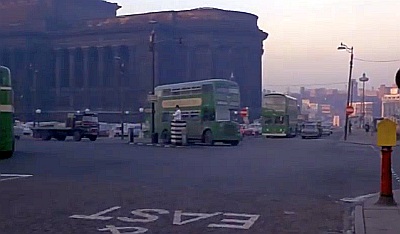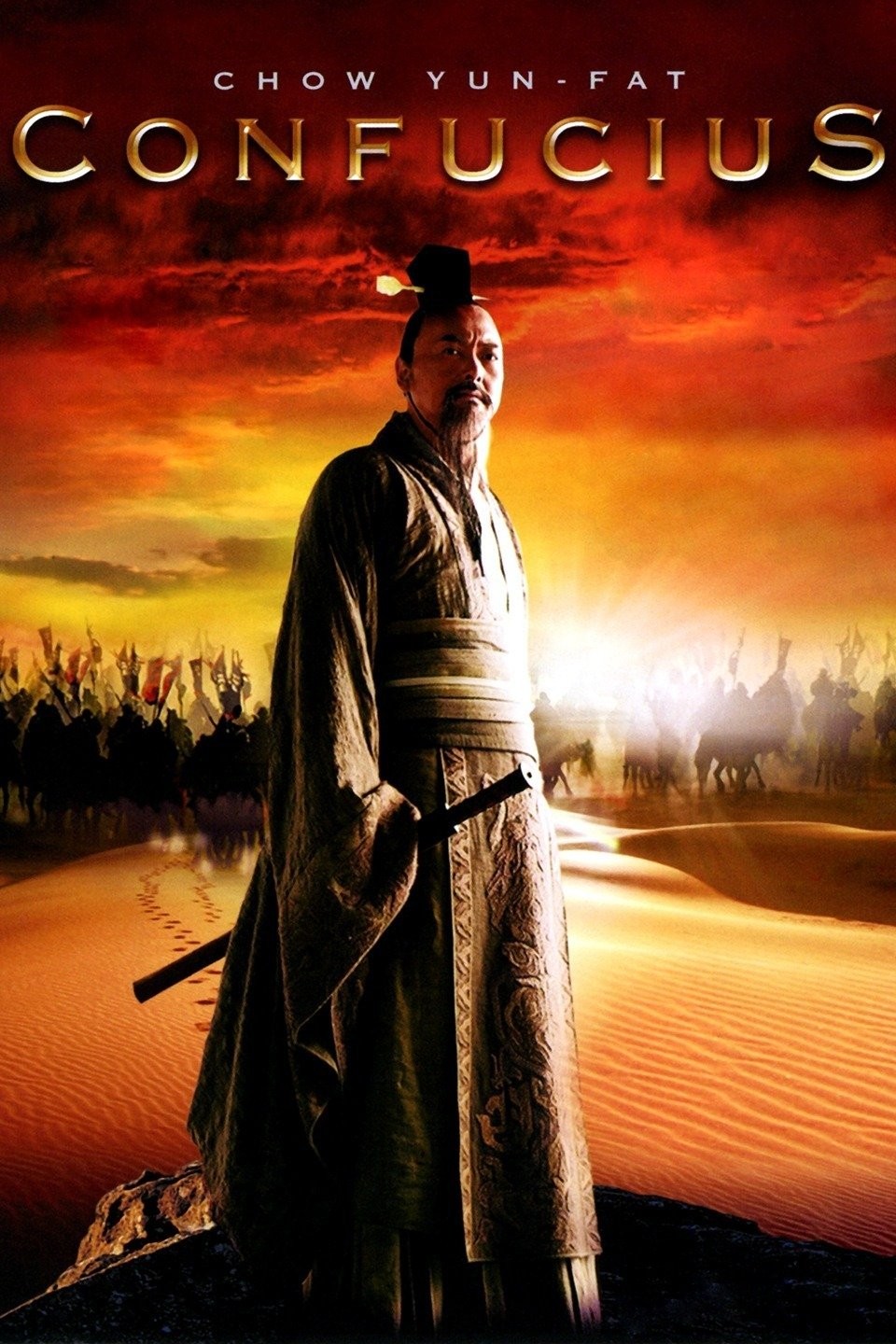(NOTE: This review originally appeared online in 2005.)
"It was my fate to become famous. And, uh...also to be damned."
That's just one of the enlightening statements made by the severely whacked-out title character in the kaleidescope of self-revelation that is writer-director Jeff Feuerzeig's
THE DEVIL AND DANIEL JOHNSTON (2005). As a study of someone who leads an extraordinary life outside society's norms it's as fascinating a journey as FORREST GUMP, ZELIG, BEING THERE, LUST FOR LIFE, or any of a number of films about individuals whose mental "differences" are what make them great artists or noteworthy people.
But whereas those were fictional (or fictionalized) accounts, THE DEVIL AND DANIEL JOHNSTON is a documentary, and is all the more interesting because this guy is real. That's right, he's really out there somewhere. And I do mean "out there."
Which kinda makes me wonder about myself, because up until the point where Daniel starts exhibiting disturbing symptoms of manic depression, his life story is one I could strongly identify with. He grew up loving comics, cartooning, and music, and was the family jokester who always had his home movie camera whirring away.
But as time went by, it looked as though he would never learn just how to straighten up, buckle down, get a job, and begin to lead a more "well-rounded life" (his mother's phrase during one of her frequent harangues, one of many things Daniel recorded on his tape recorder over the years and an inspiration for an early home movie in which he portrays her as a crazed, rolling pin-wielding harpy).
Although art was a consuming passion, music began to dominate his interests, and he became a prolific songwriter who taped dozens of songs as he sat at the piano and banged out the accompaniment. He gradually imagined that he was actually recording albums on tape, for which he decorated the covers with his own cartoon characters.
Wow...so far, this is my life story, too, except my mom wasn't on my back all the time (although my dad griped at me for not getting a job and for having such a flaky, non-"Dukes Of Hazzard"-type sense of humor). Daniel was even more of a no-account college student than me--I was able to fake my way to graduation--and soon returned home, where the signs of his manic depression began to manifest themselves more and more overtly over time. (This is where our life stories begin to part company--I was never manic).
As his behavior became stranger, he was sent to live with his brother, who evicted him soon after. Then he lived with his sister for awhile before buying a moped and running off to join the carnival. One day a large, hostile carny knocked him senseless for taking too long in the port-o-potty, and Daniel wandered into the nearest Church Of Christ for help while the carnival left town. It sounds like I'm making this stuff up, but I'm not.
Anyway, he eventually ended up in Austin, Texas, where he conned his way into a taping of MTV's "The Cutting Edge", which was covering Austin's burgeoning music scene, and performed some of his songs for a national audience. He soon became a cult figure in Austin and word of his unusual talent began to spread even as his mental problems increased to the point where the people who had to deal with him on a daily basis began to have him committed to mental institutions. Somewhere along the line he started dropping acid, which was pretty much the genesis of his lifelong battle against Satan and the forces of evil.
If this were a SPINAL TAP-type mockumentary instead of one of the most entertaining and compelling documentaries I've ever seen, it couldn't be any more far out. Thanks to Daniel's overriding compulsion to tape-record his thoughts on a regular basis, we get to hear much of the story in his own voice at the time it was happening, which is augmented by dozens of his freaky cartoons that serve to illustrate his mental state at the time.
There are also interviews with many of his friends and associates, including Jeffrey Tartakov, the guy who tried to be his manager for several years and even got Elektra Records and Atlantic Records into a bidding war over him--while he was still in a mental institution--before Daniel fired him for no discernible reason. He finally signed a contract with Atlantic and released an album, "Fun", which sold 5,800 copies. (He was dropped less than two years later.)
His parents also provide many of their own bittersweet recollections and insights, including the time his father was flying him home after a triumphant appearance before thousands of fans in Austin and Daniel suddenly turned off the engine, took over the controls, and sent their small plane spiralling headlong toward earth. His father managed to get back into the pilot's seat and crash-land in a forest. Daniel, who thought he had just accomplished something marvelous, was proud of himself.

In addition to tape recordings and interviews, there is a lot of home movie and video footage to keep this from being anything but a talking-head movie. We get to see Daniel's ill-fated trip to New York to record with Sonic Youth. We see him performing passionately before admiring crowds from Austin to Stockholm, always with the same cracking voice and awkward guitar-strumming that somehow manages to captivate people. And we see him going farther and farther off the deep end, his delusional behavior always returning to sabotage everything that goes right in his life.
Daniel is now an overweight, gray-haired, middle-aged man who lives with his parents in Waller, Texas. He reminds me of a Syd Barrett who never gave up his music. In fact, after being discovered one day by a local rocker who was blown away to find the legendary Daniel Johnston living in his very own home town (he was being attacked by dogs while walking), Daniel is now the frontman for an honest-to-goodness rock group called Danny And The Nightmares.
As for Daniel's music--well, he still sounds to me like a guy singing and playing badly in front of his bedroom mirror and pretending to be performing for an admiring crowd. Which I, myself, might have done a time or two over the years. Only he isn't pretending--he's really doing it, and his songs display a cockeyed lyrical talent that is often surprisingly poignant.
It's as though the patron saint of guys who sing in front of the mirror took pity on him and made all his musical dreams come true (well, a lot of them, anyway), which is really an amazing sight to behold. Only Daniel would argue that it was Satan who granted him musical fame, which is why he is damned, which is why he spends so much time and effort preaching to whoever will listen and warning them to turn away from evil.
"Don't play cards with Satan, he'll deal you an awful hand," one of his songs tells us. But I don't think he's damned at all. Like a somewhat more benevolent Norman Bates, he just goes a little crazy sometimes.
Read our review of
THE ANGEL AND DANIEL JOHNSTON: LIVE AT THE UNION CHAPEL

THE DEVIL AND DANIEL JOHNSTON -- Movie Review by Porfle
















































